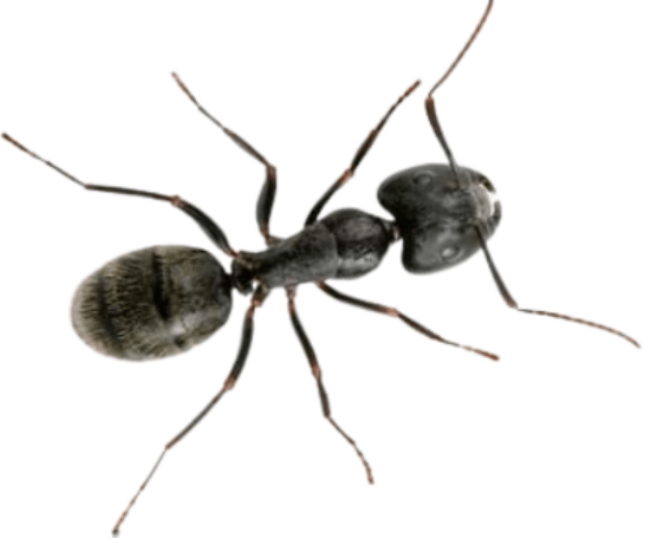Evs Class 4 Chapter 5 Questions and Answers - Free PDF Download
FAQs on NCERT Solutions For Class 4 EVS Chapter 5 Anita And The Honeybees (2025-26)
1. What are the main learning objectives covered in NCERT Solutions for Class 4 EVS Chapter 5 Anita and The Honeybees?
- Understanding the importance of education for all children, including girls
- Exploring the life and role of honeybees in nature and human life
- Learning about pollination and how bees produce honey
- Identifying the value of hard work and determination through Anita’s story
- Analyzing the significance of the Right to Education Act (RTE) in India
2. How do NCERT Solutions for Class 4 EVS Chapter 5 help students solve CBSE pattern questions?
The solutions offer stepwise answers for all textbook questions, following the CBSE syllabus for the 2025–26 session. They use clear explanations, encourage observation, and guide students through calculation-based and conceptual questions, ensuring alignment with expected answer formats.
3. What is the significance of honeybees in the environment, as explained in NCERT Solutions for Class 4 EVS Chapter 5?
- Honeybees help in pollination, transferring pollen between flowers and enabling plants to bear fruits and seeds.
- They support biodiversity and ecological balance in nature.
- Honeybees produce honey and beeswax, which are useful for humans.
4. How do the NCERT Solutions guide students to calculate the total cost of Anita’s 20 bee boxes?
The solutions teach students to use multiplication for real-life application: Total honey = Number of boxes × Honey per box = 20 × 12 kg = 240 kg. This develops basic arithmetic skills using the context from Chapter 5.
5. Why is Anita’s story important for understanding education rights, as per the NCERT Solutions?
Anita’s story highlights challenges faced by girls in accessing education and demonstrates the impact of the Right to Education Act (RTE 2009). The solutions explain why education up to class VIII is every child’s right and show how determination helps overcome barriers.
6. What qualities make an ideal school, according to CBSE Class 4 EVS Chapter 5 solutions?
- Comfortable classrooms and proper infrastructure
- Good teacher-student facilities (tables, chairs, blackboard/whiteboard)
- Playground for physical activity
- Canteen and healthy environment
- Uniform that reflects identity and comfort
7. How does the NCERT Solution for Chapter 5 encourage observation and hands-on activities related to honeybees?
Students are asked to observe insects near flowers, note their features, and even draw and color honeybees and ants in their notebooks. This promotes experiential learning and connects textbook concepts to real-world experiences.
8. What deeper understanding about worker bees is offered in the NCERT Solutions for Class 4 EVS Chapter 5?
Worker bees are crucial for building the hive, collecting nectar, feeding baby bees, and communicating through ‘waggle dances’ to direct others to food sources. This illustrates cooperation and division of labor in animal groups.
9. Explain how the NCERT Solutions address the use of honey and its different colors as per Class 4 EVS Chapter 5.
The solutions note that honey is commonly used at home for medicinal purposes and food. Honey varies in color (golden, brown) due to differences in flower sources and regions.
10. How are questions on the Right to Education (RTE) Act addressed in NCERT Solutions for Class 4 EVS Chapter 5?
The solutions explain the RTE Act 2009, stating that every child aged 6–14 years has the right to free and compulsory education up to Class VIII, as per CBSE 2025–26 curriculum.
11. What critical thinking or FUQ (Frequently Unanswered Question) prompts related to honeybee behaviour can be found in these NCERT Solutions?
- Why do honeybees visit flowers? (To collect nectar for honey production and pollinate plants)
- How would the environment change if there were no honeybees?
- What problems do humans face if bees are harmed by pollution or pesticides?
12. In what ways do NCERT Solutions for Class 4 EVS Chapter 5 promote awareness about teamwork among insects like ants and honeybees?
The solutions use examples of ant and bee colonies to illustrate teamwork and organized community living, showing how different roles contribute to the group’s survival and efficiency.
13. How do the solutions connect hands-on activities, such as crafts with peanut shells, to scientific learning outcomes?
By encouraging students to create insect models from peanut shells, the NCERT Solutions blend creative expression with scientific observation, reinforcing the identification of insect body parts and characteristics.
14. What types of questions from Class 4 EVS Chapter 5 are included in CBSE examinations, based on NCERT Solution trends?
CBSE exams commonly ask:
- Short answer questions (e.g., Why are honeybees important?)
- Application-based calculations (e.g., Total cost or honey calculation)
- Observation-based and drawing activities (e.g., Draw an ant/honeybee)
- Conceptual questions about rights, teamwork, and environmental balance
15. How do the NCERT Solutions ensure that students grasp both factual and conceptual knowledge in Class 4 EVS Chapter 5?
The solutions balance factual recall (names, processes, calculations) with conceptual understanding (reasons, relationships, critical thinking), using stepwise explanations and real-life connections as per CBSE EVS guidelines for 2025–26.


























